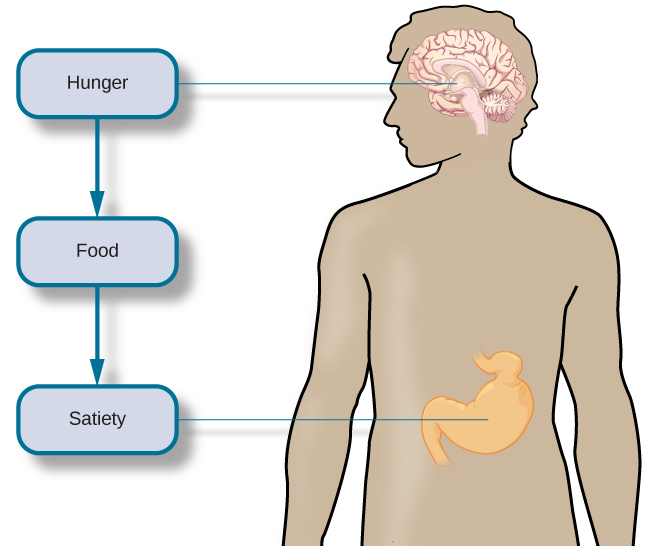- Empty cart.
- Continue Shopping
How the Body Regulates Hunger and Satiety

Hunger and satiety are complex physiological processes that govern our eating behaviors. While they may seem straightforward—eat when you’re hungry, stop when you’re full—there’s actually a sophisticated system at work behind the scenes. Understanding how the body regulates hunger and satiety can offer valuable insights into weight management, nutrition, and overall well-being.
The Biological Mechanisms
The Hypothalamus
The hypothalamus, a small region in the brain, plays a central role in regulating hunger and satiety. It receives signals from various parts of the body and responds by triggering feelings of hunger or fullness.
The Digestive System
As food passes through the digestive system, different hormones are released to either stimulate or suppress hunger. These hormones send signals to the hypothalamus, which then acts accordingly.
Energy Stores
The body’s energy stores, primarily in the form of fat, also send signals to the brain. When energy stores are low, the brain triggers hunger to encourage food intake.
Key Hormones Involved
Ghrelin
Often referred to as the “hunger hormone,” ghrelin is produced in the stomach and signals the brain to initiate feelings of hunger.
Leptin
Produced by fat cells, leptin signals the brain to suppress hunger when sufficient energy stores are available.
Insulin
Produced by the pancreas, insulin helps regulate blood sugar levels. High insulin levels can suppress hunger, while low levels can stimulate it.
Peptide YY (PYY)
Released by the intestines, PYY is a satiety hormone that signals the brain to reduce food intake.
External Factors
Emotional State
Emotions like stress, sadness, or boredom can influence eating behaviors, often leading to overeating or emotional eating.
Social and Cultural Influences
Meal timing, portion sizes, and food choices can be influenced by social and cultural norms, which can impact feelings of hunger and satiety.
Physical Activity
Exercise can influence hunger and satiety hormones, often suppressing hunger in the short term but increasing it later as the body seeks to replenish energy stores.
In conclusion, the regulation of hunger and satiety is a complex interplay of hormones, brain signals, and external factors. Understanding these mechanisms can help individuals make more informed choices about their eating habits and overall health. While hormones like ghrelin and leptin play key roles, external factors such as emotional state and physical activity also have a significant impact. By paying attention to both the biological and external cues, you can better manage your hunger and satiety, leading to a more balanced and healthy lifestyle.








